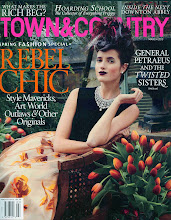Lately I have been thinking about the art that adorns my walls. Or, lack thereof. I have lived with white wall space for a long time, probably because I have a hard time committing to art. The first rule of collecting is buy what you love, and I appreciate so many styles and periods that I have become stuck. This is to be expected from an art history major, so I decided to start now, set my budget, and really start looking from the many great places to buy art today. For prints, visit
Pocker and
Natural Curiosities; for all types of highly-covered major art,
Artsy; for talent discovery, U Gallery; to shoot and print your photos check out
Uplo; and scope out art prints, click on over to
Clic Gallery.
When I got my first "serious" piece of art recently, a stunning
Paul Lange Big Bloom photograph of an over-sized flower, I knew it needed to be framed and hung with care. I called upon ever-knowledgeable Robyn Pocker of
J. Pocker, the framing experts who excel at conservation and restoration in Manhattan since 1926. Their array of beautiful and unusual custom crafted frames, on display in their New York, Bronxville, Westport and Greenwich locations is unmatched, as is their ability to pair art with the most appropriate surrounding. Frames enhance the experience of looking at art, be it a treasured masterpiece or favorite note from a child. Pocker, whose father started the business, will find the best home for it, consider budget and time frame. Since every piece of art, from a memento to an oil painting can benefit from the proper surrounding, I like that the process of selecting a frame and mat is a considered process, where advice is dispensed with wisdom accumulated over the past 80 years. It also helps that Pocker's workroom is near NYC, and its nice to know that things like this are created locally.
To really pack a one-two punch, it helps to hang your art properly. I turned to
ILevel, the New York/Connecticut-based art placement and installation pros. By considering the wall space and interiors, they advise optimal placement for collections large and small.
There are many reasons to treat your art like it is priceless, but if it means something to you, that is really all that matters.

I went in to visit with Robyn, and she guided me through the process
of matching my print with its surroundings. When she proposed a clear
lucite frame I knew, that was the perfect match, to create a seamless
look, keeping the focus on the vividly colored flower. With a white
matte to surround it, the look is crisp, clean and fresh.
The handcrafted wood, metal and painted frames range in styles from classical to minimalist. I love bamboo, and the gold shimmer of the gilt version above is a special statement.
Frames
can really capture a sense of place as well as the period and style of
the piece being framed. The white Birch frame is so beautiful for a
rustic country setting.
When I got the call that my print was framed, I could barely contain myself. The result was more than I could have hoped for. Let the collecting begin!
As much as I love my Karen Robertson coral, I knew this was not the best place for it. For starters, I had it hung to high, and it looked like it was orbiting in space. It had to be moved.
When Scott from ILevel showed up, he shared all sorts of great advice on hanging art. The biggest thing people get wrong, as I did, is hanging art too high. The rule of thumb is to hang art 8-12 inches above a sofa or piece of furniture, so it relates to the piece and interacts with it. Since we were hanging one large piece, it was straightforward, but when hanging salon and gallery style, it helps to map out the whole thing with sketches before getting to work.
Voila, the result of a beautiful frame and proper hanging advice. Scott created a handy paper envelope that he taped to the wall to catch any debris created from drilling the wall. Nice touch.
Photo courtesy of ILevel
Once I start amassing enough artwork I adore, I plan to take on creating a gallery wall.
Here are some helpful tips ILevel provided:
1. To create the most cohesive result, look at the whole piece as a singular work
2. If you have the space, start by creating a template -- measure the
wall, create paper cut-outs, and lay the arrangement out on the floor to
see how it will look. From there, you can re-jigger
3. Don't try and find the center, instead, map out interrelationships and start in a corner
4. Work inwards, to create a balanced whole.
Think of it as free-form, align to what is above or beside each piece
5. Putting the biggest piece in the middle looks like a satellite, so try doing it off center, it is easier on the eye Discover your style, the way you like to hang pieces can vary from someone else.
When Scott shared that each person at ILevel has their own hanging style, I was fascinated by that. The very way you approach the assortment can vary, depending on what the highlights and proportions are.
Here are three stunning moments ILevel created:
Photo courtesy of ILevel
A wide ranging assortment of family and vacation photos.
Photo courtesy of ILevel
How do you hang a Damien Hirst and Antlers? Now you know, courtesy of ILevel.
Photo courtesy of ILevel
The chic pine-panelled J.Crew Men's Store on Madison Avenue got a big dose of personality once the artwork livened things up.
Photo courtesy of Elle Decor
Kristen Buckingham's collection is filled with brights
Photo courtesy of Elle Decor
This picture may be old, but it sure is good. making the most of a high ceiling eave, Early American-themed art work is tied together by being put in black frames.
Photo courtesy of Steven Gambrel Elle Decor
In a hall with white walls, Steven Gambrel accentuated family photography by framing them in red frames. This image had always stood out to me for its personal approach and punchy color use.
Photo courtesy of Nate Berkus Elle Decor
Nate Berkus created a unified presence with all black and white artwork, varying the frames of wood and lucite for interest. The result is sultry against a deep blue lacquer wall.














































































